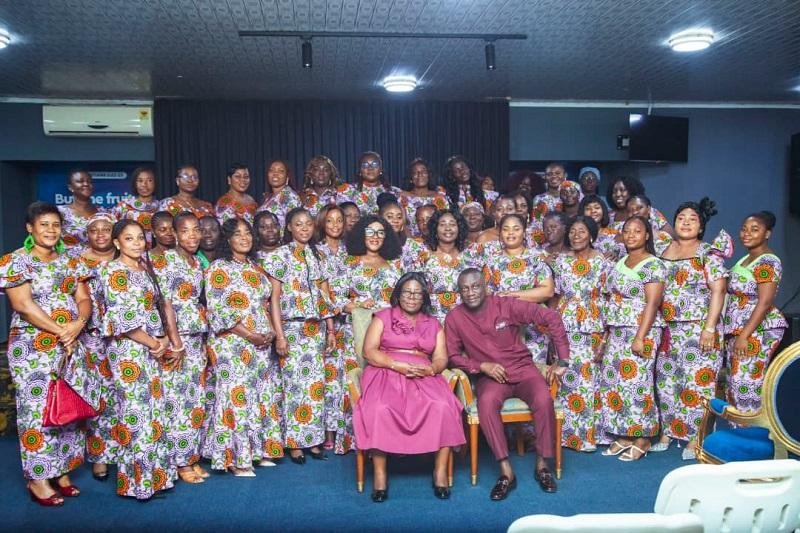News
Government to train chiefs in Volta Region to resolve disputes and improve local governance – President Mahama

President John Dramani Mahama has announced that the Ministry of Local Government and Chieftaincy will roll out capacity building workshops to strengthen the leadership of traditional rulers in the Volta Region.
The initiative, he said, is part of a bigger plan to enhance the role of chiefs in governance, conflict resolution, and community development particularly in Volta, where chieftaincy disputes are on the rise.
According to the President, the workshops will equip chiefs and traditional council staff with the skills and knowledge to manage disputes, handle community affairs, and better understand their statutory responsibilities.
He made this known during a high-level engagement with the Volta Region House of Chiefs at the Flagstaff House.
The chiefs had raised concerns about the increasing number of unresolved chieftaincy disputes and the limited capacity of newly inaugurated traditional councils.
President Mahama acknowledged the challenges and said government would provide direct funding to support these workshops and ensure that traditional leaders in the region are empowered to function effectively.
He stressed that strengthening the institution of chieftaincy was critical to maintaining peace and stability at the community level, and would support efforts in decentralization and grassroots development.
The President also expressed hope that the ongoing constitutional review process would capture the views of traditional authorities particularly in enhancing their role in sanitation, civic education, and environmental management.
President of the Volta Region House of Chiefs, Togbe Tepre Hodo IV, welcomed the announcement and said the Volta regional house of chiefs was ready to partner with the government to resolve disputes and promote development at the local level.
By: Jacob Aggrey
News
Parents urged to take responsibility for sex education
Dr Francis Wuobar, A Gynaecologist at the Eastern Regional Hospital in Koforidua, has urged parents to take the lead in providing sex education to their children, stressing that they were in the best position to guide them through the changes of adolescence.
According to him, sex education remained a taboo subject in most Ghanaian homes, a culture that must change to prevent children from seeking misleading information elsewhere.
“With the evolving nature of society and technological advancements, today’s children will either learn about sex on the internet or from their peers, who may offer wrong advice,” he cautioned.
Dr Wuobar noted that the health system and society often concentrate on the reproductive stage of life, neglecting the adolescent and menopausal phases.
“When a woman reaches the reproductive period and gets pregnant, everyone rallies around her. But before that stage, during adolescence, there is little attention and guidance, which has contributed to the rising cases of teenage pregnancy,” he explained.
He further observed that many adolescents lack access to counselling and adolescent clinics, creating a vacuum that forces them to explore on their own.
“The answers they seek, adults and parents are not willing to provide. Their peers, who are equally uninformed, become their only source of advice. This exploration is one of the major contributors to teenage pregnancy,” he elaborated.
Dr Wuobar, therefore, called on parents to create open and confidential spaces for discussion, where children can freely ask questions about sex, puberty, and relationships.
Moreover, he emphasised that parents must help adolescents understand the consequences of unprotected sex, the changes they go through, and what choices were right or wrong.
“Today’s generation is curious and asks questions, unlike in the past when children were silent. Parents should not rebuke them but rather engage them seriously and guide them through this turbulent stage,” he advised.
He again appealed to the health sector to establish more adolescent clinics across the country to give young people safe spaces to seek information and counselling.
That, he emphasised, would help reduce the high incidence of teenage pregnancy and support adolescents in making informed decisions about their sexual health.
- From Ama Tekyiwaa Ampadu Agyeman, Koforidua
Join our WhatsApp Channel now!
https://whatsapp.com/channel/0029VbBElzjInlqHhl1aTU27
News
TBCCC Women’s Ministry marks first anniversary

The Battle Cry Community Church (TBCCC) Women’s Ministry has commemorated its first anniversary at Adenta in Accra.
The five-day event which was held from Wednesday, August 27 to Sunday, August 31 was under the theme “A new chapter of beauty”.
Activities held included worship and prayer nights, and sessions of exhortations.
An Associate Pastor of Harvest Chapel International, Lady Pastor Hagar Hasford, in a sermon likened the journey of women to exchanging ‘ashes for beauty’ and urged them to lay down their burdens in prayer for total honour and restoration.
With biblical insights from Esther 2:12, she reminded women that obedience and covenant loyalty were keys to divine preparation.
She said true beauty is when one comes into God’s purpose with divine alignment.
Mrs Anna Owusu, a proprietress and leader of the TBCCC Choir, encouraged women to live with determination, maintain a growth mindset, and remain true to their God-given identity.
She said, stepping into a new chapter requires both spiritual and personal commitment.
A retired pastor, Rev. Mrs. Florence Baidoo, said beauty should be both inward and outward, reflecting Christ in a way that draws others to Him.
By Linda Abrefi Wadie
Join our WhatsApp Channel now!
https://whatsapp.com/channel/0029VbBElzjInlqHhl1aTU27








